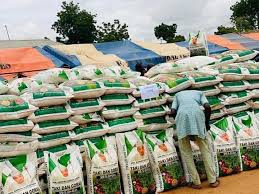While welcomed in principle, the abrupt charcoal ban has left both traders and buyers unsure of where to turn.
Earlier this year, Hamidu Ssenyondo, a charcoal trader in northern Uganda, was full of hope as he acquired a loan to help him grow his successful business. Over the past two decades, the 54-year-old had built a reputation for selling “quality” charcoal – so much so that he became known among his clients as “Hajji Magumu”, a fond nickname with connotations of “durable charcoal” in Luganda. The time was right, he decided, to expand his activities so he could supply more communities in Uganda and perhaps even across its borders.
But Ssenyondo’s plan didn’t go as expected. A mere week after investing his loan, he was arrested by police. Along with seven other traders, he was charged with contravening a presidential order, issued two months earlier in May, banning the commercial trade of charcoal. The eight businessmen were ordered by a court to pay heavy fines or risk serving three years in jail. Authorities impounded 1,900 bags of charcoal, 200 of which were from Ssenyondo, and auctioned them off.
“We had to accept anything to get our freedom back,” says the father of ten.
President Yoweri Museveni’s executive order was aimed at protecting Uganda’s environment. In part due to the charcoal industry, the country’s forest cover declined from 24% in 1990 to just 9% in 2018. Endangered tree species like shea and African Afzelia have been slashed. And deforestation has contributed to the disruption of local weather patterns and agricultural output, with rains becoming more erratic and dry spells getting longer.
The ban of commercial charcoal, whose burning also releases high levels of carbon and other pollutants, has largely been welcomed by environmentalists. However, the policy has also highlighted the complexities of transitioning from dirty energies to cleaner sources, a challenge facing virtually every community and country in the world.
The policy has, for instance, undermined the livelihoods of many people, from direct producers and traders like Ssenyondo to the boda boda drivers who transport the product. In the last few months, at least 28 traders have been charged in court and over thousands of bags of charcoal have been confiscated, representing a huge loss in income and investment. An industry that has boomed in northern Uganda since 2008 when producers rushed to region after the civil war has been upended with little to cushion the effects.
Traders say that the implementation of the ban has been too abrupt. They argue that the government should have given them a grace period in which to quit the industry and sell off their stock. Many feel that they have only been penalised and not supported to transition out of the industry.
Irene Nabantanzi, 34, for instance, faced a triple blow to her finances after she was arrested. She lost 200 bags of charcoal she had invested in to produce, was fined by the courts, and had to pay legal fees to her lawyers. She says she has gone into debt and is unable to pay the labourers she hired to burn the charcoal, who are stuck in the forest without money to return to their home districts.
“Why do they continue to punish us?” she asks of the government. “We obeyed everything they asked us to do.”
Nabantanzi and others that have had charcoal impounded have been pleading with the National Forestry Authority (NFA) not to auction it off but to sell it back to them at a lower price so they can sell it on and recoup some of their losses – but to no avail.
In the absence of alternatives, many traders feel they have little choice but to continue producing charcoal illegally. This is risky but highly lucrative, especially as charcoal prices have soared since the ban, and as demand in both Uganda and neighbouring Kenya, which banned charcoal production in 2018, continues to grow.
This has led to a game of cat and mouse between traders and authorities. Some producers now burn wood to produce charcoal at night to evade police patrols and smuggle their goods in food trucks, water tanks, and public buses. In response, authorities have turned to working with “community volunteers” to monitor hotspots where charcoal burners hide, according to Amuru Resident District Commissioner, Stephen Okello.
For some traders, there is also another option for evading arrest.
“The only way to avoid getting arrested is to bribe the police at checkpoints – the more money you give, the more charcoal you get to pass,” says trader Ismail Nsanja, 42. “That’s how things work these days.”
National Forestry Authority (NFA) spokesperson, Juliet Mubi, denies knowing anything about such allegations but an NFA official who requested anonymity echoes them. They say that “banning the charcoal trade completely would be difficult” in northern Uganda due to a web of “powerful soldiers, government officials and wealthy individuals” with vested interests in the industry.
President Museveni’s executive order also refers to corrupt links between the charcoal industry and state “security groups and government agencies”. “Apparently, armed people escort this charcoal”, he writes, adding that “locals now hold the security people in great contempt”.
In fact, these alleged connections are given as a key justification for the ban. “In order to save the environment and reputation of the [ruling] NRM, I, therefore, hereby ban the cutting of trees for charcoal burning,” he summarises.
Museveni’s executive ban has also created challenges for buyers of charcoal. In Uganda, an estimated 90% of people still rely on biomass for energy and have few readily available alternatives.
Emely Kugonza MP, the former Vice Chairperson of the Committee on Environment and Natural Resources, says the government should have “come up with workable solutions for energy alternatives” before issuing the ban. He says that the policy should be reviewed to “find a balance between protection of the environment and livelihood enhancement” and suggests that priority ought to be fixing policies to support people to buy and refill gas cylinders.
By contrast, Dickens Kemigisha, Executive Director of African Institute for Energy Governance (AFIEGO), believes the priority should be developing hydropower as “the greenest alternative” to avoid the unnecessary burning of fossil fuels. Hydropower already contributes 78% of the country’s energy production, according to the Electricity Regulatory Authority. Uganda also exports hydropower to neighbouring countries, yet only 45% of Ugandans, as of 2020, were connected to the domestic grid.

Sign up for free AllAfrica Newsletters
Get the latest in African news delivered straight to your inbox
France Atube, an agriculturalist from Gulu University, proposes growing the as yet underdeveloped market for “green charcoal”, a form of briquette made from agricultural waste. He says this cleaner approach would “save the trees” and work for rural communities who may not be able to afford alternatives or be connected to the grid.
NFA’s Mubi says the Authority is currently promoting bamboo growing as an alternative source of fuel due to its versatility and speedy growth.
There are numerous promising alternatives to charcoal, in principle, but developing the policies, infrastructure, or markets to make them widely available and accessible cannot happen overnight.
As these debates continue, both former sellers and buyers of charcoal wish these conversations had happened before the ban was put in place. They recognise the importance of combatting deforestation and stopping the use of unclean energies but feel like they were sacrificed for the greater good.
“We are not against the ban, but we were forced to cut trees to survive,” says Ssenyondo. He is pleading for some support or leniency from the government so he can recoup some of his losses and start afresh. “That way, I can go back to my home village and look for something to do to look after my family”.
John Okot is a freelance journalist based in Gulu, northern Uganda.
Note: This article have been indexed to our site. We do not claim legitimacy, ownership or copyright of any of the content above. To see the article at original source Click Here













